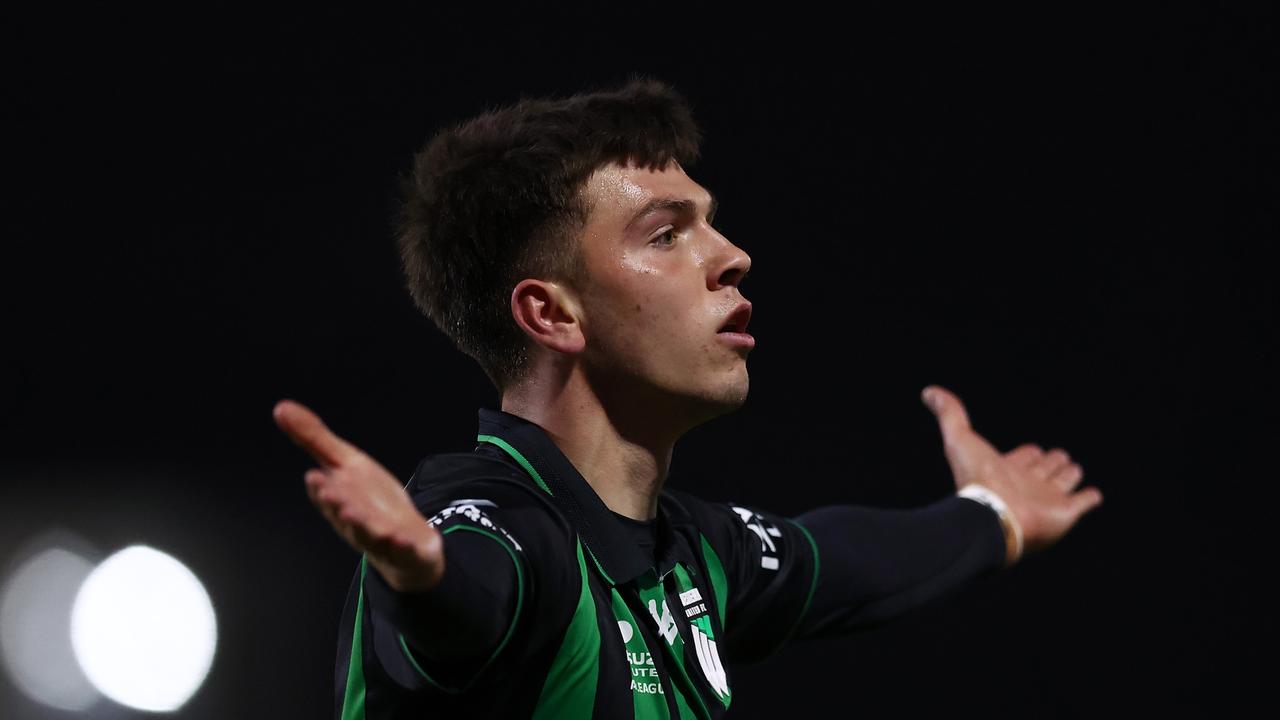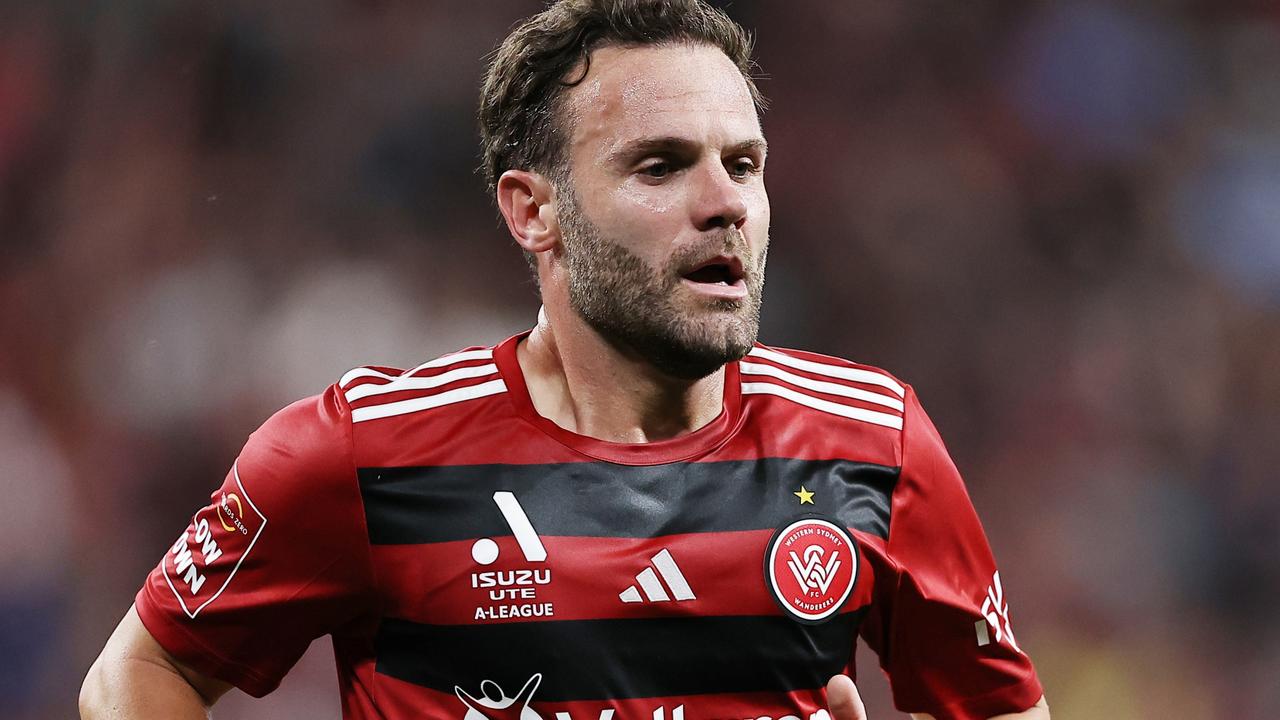Tim Cahill won’t allow ‘weak-hearted’ efforts to infiltrate Socceroos culture
AT THE start of a defining 13 months for the Socceroos, Tim Cahill is in no mood to be thinking about running down the clock in his 38th year.
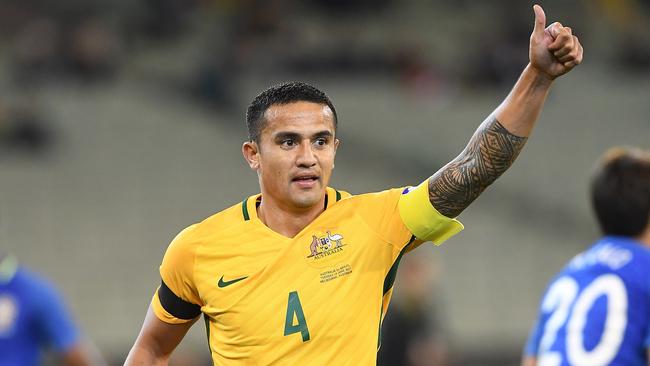
Football
Don't miss out on the headlines from Football. Followed categories will be added to My News.
TIME waits for no man. But at the start of a defining 13 months for the Socceroos, Tim Cahill, who turns 38 at the end of this year, is in no mood to be thinking about running down the clock.
The heartbeat of the national side for more than a decade, Cahill has his sights on what he calls the “destiny” of reaching a fourth consecutive World Cup finals.
For that to happen the Socceroos — third on goal difference in a group offering automatic qualification to Russia 2018 to only the top two — must navigate a tough trip to leaders Japan and a less fraught home match with bottom dwellers Thailand to wrap up the campaign.
Should all go to plan, and Cahill retain his place, he would be on the cusp of joining a select group of players to have played at four World Cups. He has scored in each of the last three.
CONFEDS CUP: Milligan says Roos will adjust to life without Mile
RUN DOWN: What you need to know about the Confederations Cup
QUESTIONS: Why Roos fans are arguing before Russia
Before that, comes the Confederations Cup, which opens for Australia with a huge clash with world champions Germany next week. Should he feature there and in the other group games against Cameroon and Chile, Australia’s leading scorer would reach 100 caps.
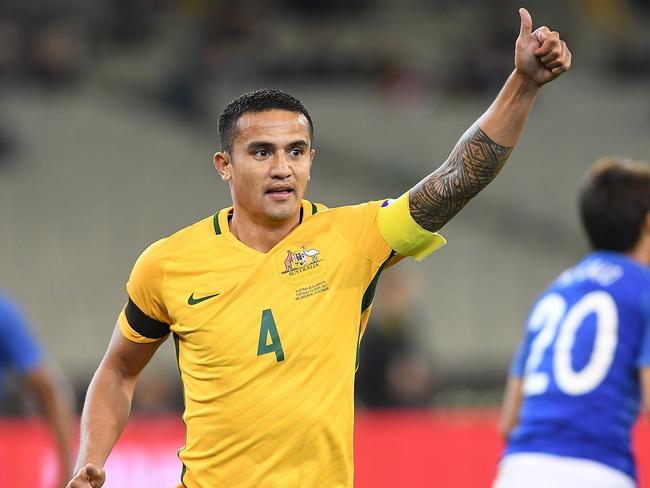
It would be a stunning achievement. But, such is his enduring passion and commitment to the collective cause, such things barely register as important.
“Personal goals have not ever been something that I look to as a footballer,” he says. “Because normally when you start focusing on that too much, you don’t reach them anyway.
“Whether it’s goals scored, or caps, I’ve never been too in to that. To play 100 games? Amazing. But I’m always looking for the next best moment.”
His most recent outing, against Brazil at the MCG on Tuesday night, will not feature heavily on his well stocked highlights reel. Cahill struggled to impose himself as the Socceroos were beaten 4-0. Though before his second half substitution his work rate and intensity was unquestioned, his willingness to try to take responsibility was typically evident.
How Cahill has stayed at the top of his game deep into his fourth decade — a time when most of his peers have called time on their careers — is no secret. Hard work and more hard work.
Between the end of the A-League season and joining up with the national camp he embarked on two weeks of intensive physical training to finetune his body. Even in the autumn of his career he is one of the fittest players in the squad.
“The one thing that I’ve always put emphasis on is professionalism,” he says. “Where I can get my body to. I’m 37 years old and feeling great, in peak condition.
“My competitiveness, and competitive streak is to always deliver on the pitch, regardless of age.”
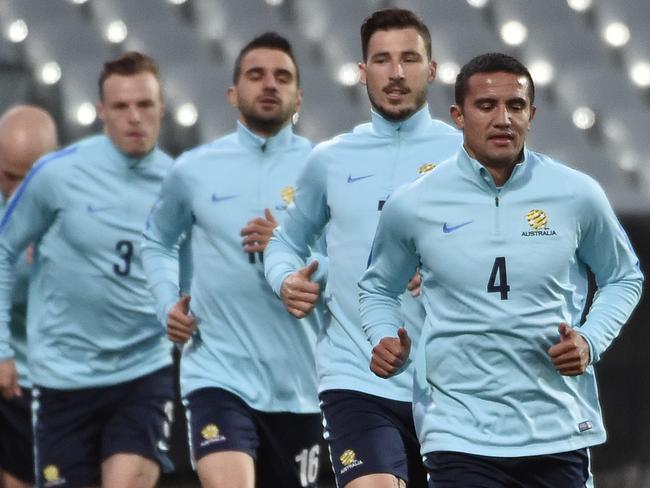
This longevity was aided by a return to Australia last year after a stellar career in England, with Millwall and Everton, followed by stints in the US and the Chinese Super League.
Fewer games in a season in which he helped Melbourne City to their first piece of silverware, the FFA Cup, has helped him manage his body, even if, due to minor injuries, he admits he was for periods playing at “70-80 per cent fitness”.
A change in role for the Socceroos has also helped. Once a rampaging box-to-box midfielder, he is now used more as an impact substitute, called on to provide a spark or piece of magic in the latter stages.
“I’m always competing to have an impact — whether that’s for 90 minutes or five minutes,” he says. “It’s a real strong ethos in this team. If you’re picked to come on the day, players can change the game.”
Off the pitch, his role has developed. As the squad’s elder statesman, others look to him for guidance and support. Any love shared is of the tough kind. Camps, like games, are “all business”.
“The mentoring, the guidance, that’s something we’ve done our whole career. After playing in one World Cup, in the second I had a role looking after players while still getting on with the football.
“Now it is a lot younger squad. The main thing that I search for in players is consistency and professionalism. Those are the main keys to having a successful squad. We have to have certain standards to come in to camp. You can’t come in to the camp without minutes under your belt, not being fit, a certain fat percentage, a certain weight, certain intensity in games.
“That’s the reason why myself, Mile [Jedinak], Millsy [Mark Milligan] have an easy job of making sure they understand how important it is to be prepared every game, whether it’s a friendly or a competition game.
“This isn’t an environment for players who are weak-hearted. They don’t know if they’ll be pulling on a green and gold jersey next week, or if they’ll be called in to the next camp. Every camp should be treated like it’s your first and your last.”

